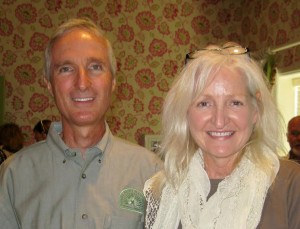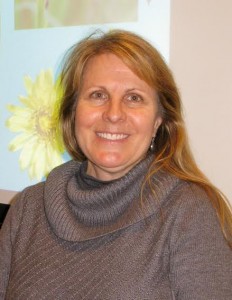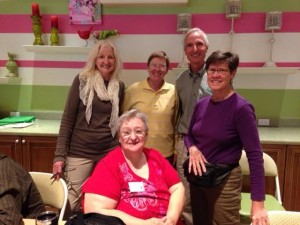
Village of Buttonwood residents Stephen and Susan Turnipseed, were astounded at the huge turnout Friday afternoon at the Big Cypress Recreation Center. Steve is president of the newly forming Villages chapter of the Florida Native Plant Society.
“I knew some people would show up for our inaugural meeting — but I never expected anything like this. I can’t believe this,” he said.
Nearly 150 people showed up for the meeting.
A total of 44 American states have Native Plant Societies, and Florida’s is the third largest, after California and Texas,” Turnipseed continued. “Those of you who join this new group will be part of the 39th chapter in Florida. The FNPS started in the Sanibel Island area in 1980 with 12 people — and there are currently about 8,000 members state-wide — not including the people in this room.”

Steve introduced the first speaker, noted landscape architect and ecology advocate, Karina Veaudry, who frequently does public speaking on such topics as conservation planning, low impact sustainable landscape designs, vegetated roof gardens, cistern systems and the ecological benefits of native plants.
“We are advocates for the balance of conservation and development,” Veaudry began. “Using native plants in urban and suburban communities is not only good for Florida, it has national implications.” The organization explores the ecology of native plants and their relationships with wildlife: birds, butterflies, insects, fish and animals. It has education and outreach efforts; a public policy and legislative arm, which lobbies Tallahassee; and it also conducts scientific research. Our chapters cover such topics as landscape design; homeowner and community regulations, and offers information on trees, shrubs, ground cover and grasses that go well in each area. Most chapters take field trips to wilderness areas; some hold plant sales, and they recommend books and courses on ecology-related topics.
Veaudry explained that the Queen palms, Crepe Myrtles and many other plants which abound in central Florida are not native plants. They may look good, but they don’t attract wildlife, and don’t give anything back to the soil.
“We work against the extirpation and extinction of bird, butterfly and wildlife species who will only pollinate or nest in native plants. We also discourage people from planting invasive species, like Mexican petunias and certain palms, which crowd out beneficial native plant species,” Veaudry said.
When Veaudry first mentioned the need for a board of directors for the club, there wasn’t much response; but a little later, when she again brought the topic up, people readily volunteered for these tasks.
“You don’t need to be an expert in ecology to help your club. You just need to have the motivation and organizational skills,” Veaudry said.

Jeannie Powell will be the secretary and Mary Jeanne “MK” Walsh, who has a financial background, will be club treasurer. Georgette Gerry volunteered to be vice president of field trips; and Kathy Porter will be vice president for programs. Susan Turnipseed will be the chapter’s liaison with the state organization. She will attend their periodic caucuses and share state-wide information with The Villages chapter members.
The second speaker, University of Florida extension agent, Lloyd Singleton, showed colorful plant slides and suggested specific plant species that thrive in our central Florida area, with its rainy season and droughts.
Originally from Mississippi, the Turnipseeds moved to The Villages from Niger, in West Africa, where Steve was involved in gas and oil exploration with Chevron.
It will be a short while before The Villages new FNPS chapter’s website will be up and running. Annual dues for The Villages chapter will be $35. For more information, visit www.fnps.org. Stephen Turnipseed can be reached at gonebirdwatching@gmail.com
—

